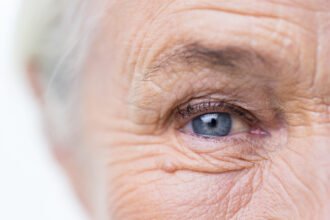The skin is the largest and heaviest organ in the body, with an average surface area of 20 square feet. And with such a large expanse, taking care of the skin can be quite a challenge.
One particularly vital part of the skin is collagen—making up roughly 80% of the dry weight of the body’s largest organ.
Collagen is also a key factor in maintaining the suppleness and elasticity of our skin. That said, as we age, we lose around 1% of collagen annually or approximately 7% to 10% per decade. For people approaching their golden years and beyond, the continuous dwindling of collagen levels can lead to wrinkles and inelasticity of the skin.
No one enjoys the inevitability of aging, but luckily there are ways to prevent wrinkles by increasing collagen levels. Here’s how you can boost collagen levels naturally.
What Causes Collagen Damage?
Ultraviolet (UV) rays and smoke pollution are some of the leading causes of a decline in collagen production.
UV rays penetrate deep into the skin and can damage collagen fibers and lead to abnormal elastin growth, leading to fine lines and wrinkles. UV rays are so strong they can damage a skin cell’s DNA, which can put people at an increased risk of cancer.
The particulate present in air pollution can also damage collagen and impair the lipids present in the skin. They weaken the skin and strip the minerals present in the outer layer, rendering it useless in its protective properties. Smoke exposure also weakens the collagen fibers and makes them more fragmented, which can cause tone-dulling and skin dehydration.
While some factors like ageing and location are beyond our immediate control, there are a few ways you can help increase the collagen levels in your body.
The best and most reliable ways to treat collagen conditions are found in clinical settings. Here are some of the best ways to boost collagen production and improve your skin quality.
How To Increase Collagen Production?
Let’s look into 5 great collagen-boosting treatments you can consider.
Microneedling
Also known as collagen induction therapy, micro-needling is one of the most optimal treatment procedures if you wish to increase collagen production while improving skin texture.
The procedures entail puncturing the skin using a tool equipped with several needles. These wounds stimulate the creation of collagen and elastin due to the body’s natural healing response.
The procedure takes around 20 minutes to complete, and the use of numbing creams makes it painless.
Dermal Fillers
If your temples look hollow and saggy due to age, VCI recommends patients get dermal fillers to replenish the lost volume in the face. Dermal fillers are also a viable treatment procedure to combat wrinkling and hollow cheeks.
The loss of collagen in our skin stems from the skin’s innate inability to heal itself. The use of dermal fillers can remedy this issue. These gel-like substances are injected below the skin and can quickly restore the volume and smoothness of the skin.
Medical experts have proven that dermal fillers composed of hyaluronic acid and purified polynucleotide are effective in promoting collagen formation and improving skin suppleness. This is because these injections draw water back into the skin, making it look younger and fresher.
Platelet-Rich Plasma Injections
Platelet-rich plasma (PRP) injections use a person’s blood to generate new collagen. These injections contain growth-stimulating compounds that activate fibroblasts, or cells that produce collagen.
Platelet-rich plasma injections are also used to treat torn tendons, muscle injuries, and joint injuries, as it improves the regenerative abilities of the patient. Combining PRP treatment with regular micro-needling produces the best results for the skin.
PRP injections are generally low risk and carry very few side effects. Some common side effects include bleeding, soreness, and bruising at the injection site. That said, consult with your doctor before deciding whether this therapy is right for you.
Laser resurfacing
Laser resurfacing improves the skin’s natural appearance and treats minor facial flaws. There are two main types of this laser:
- Ablative: This laser removes the epidermis—the top layer of skin—and heats the dermis, the next layer. This stimulates the growth of collagen. Some examples of resurfacing layers are CO2 lasers and erbium lasers.
- Non-Ablative: These lasers employ a less aggressive approach, but the results are less noticeable. Intense pulsed light therapy (IPL) is an example of non-ablative laser treatment.
Laser resurfacing can reduce the appearance of fine lines and increase skin tone. However, laser resurfacing is not for everyone. Consult your doctor before opting for laser treatments.
Ingestible Collagen Supplements
Collagen supplements are ingestible tablets that improve joint and bone health. These supplements help raise skin elasticity, promote joint health, build muscle, and burn fat.
Collagen supplements usually come in three main types:
- Hydrolysed Collagen: This form of supplement is also known as collagen hydrolysate or collagen peptide. It contains collagen that has been broken down into amino acids, which our body may absorb.
- Gelatin: The collagen in gelatin is partially converted into amino acids.
- Raw: Denatured or natural collagen is one of the types of collagen supplements.
Though collagen supplements exist, collagen can also be obtained directly from our diets, such as eggs and fish. Our body breaks down all collagen forms into amino acids. Once broken down, these amino acids are then used to build collagen or other proteins.









